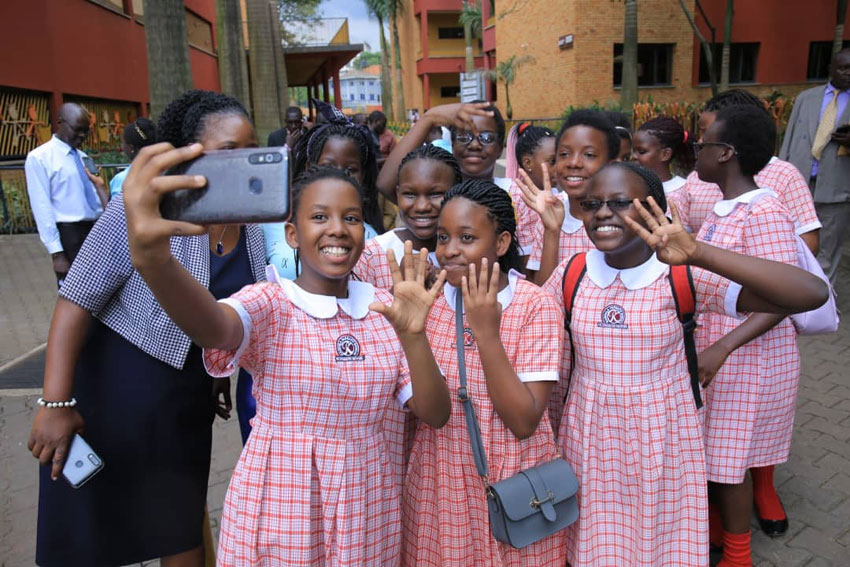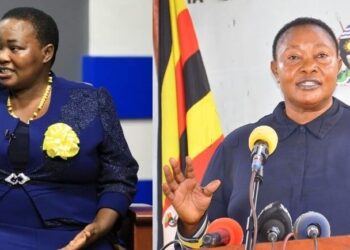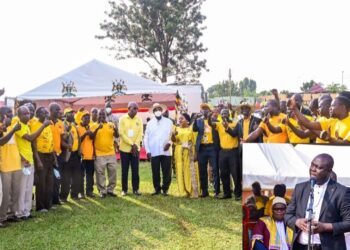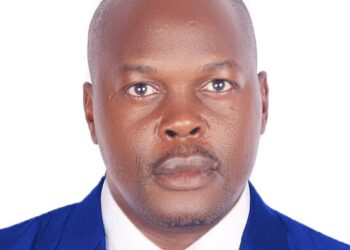On the 20th day of March this year, in compliance with the presidential directives on fighting Covid-19 issued on 18 March 2020, all learning institutions in Uganda closed and all learners returned home. In her address, the Minister of Education and Sports, Hon. J.K. Museveni set 27th April 2020 as the date for reopening of schools. However, since then the date for reopening schools has been extended until of recent when the president indicated that reopening of schools is not to happen soon.
To make matters worse, no new date was set for reopening schools and all we are gathering from newspapers is that the Ministry of Education and Sports instructed the National Curriculum Development Centre to prepare self-study learning materials for the whole academic year, and that government is preparing teachers to carry out homeschooling.
This is very absurd for the teachers, learners, parents and proprietors of schools among others.
It should also be recalled that the ministry has been issuing out self-study materials. However, it has been noted with great concern that this move has many limitations key to note;
a) The low literacy levels of parents, guardians and learners especially in rural areas which means that the materials are not put to full and proper use. Previous reports, especially those by Uwezo, have always indicated that rural learners can barely read on their own. Many cannot read with understanding implying that asking them to revise these materials on their own cannot yield to the expectations of the state.
Many of the parents in rural areas are illiterate with a majority having difficulties in reading and comprehending written texts. Very few can interpret, or even understand the curriculum and how to implement it. Many parents have little or no knowledge of their children’s learning differences and, as a result, cannot offer professional assistance to the children to aid their effective learning.
This implies that study materials without professional assistance can do less to aid learning.
b) Many learners have not accessed materials until now, even after over two months since the project was launched. Hoima District received them on 17th of June 2020.
This alone is an indicator that this method of work cannot work especially now.
c) It would be, and has always been, easier to access learning materials through New Vision, a company that was contracted to publish them. However, this implies that a parent will have to buy newspapers to have access to self-study materials. Many parents cannot afford dailies, especially now that they are struggling to address the most urgent essential needs like food.
b) Very many homes lack home libraries to supplement learning using self-study materials. The nature of the self-study materials is that they can be used together with other materials like books and trained teachers competent enough to teach. This is not the case.
As the government continues to keep the schools closed, the following issues keep arising.
1) The child and the parent
The president, in his Heroes’ Day address, informed the nation that parents are asking him to declare a dead academic year. I want to assume that this is a small section of privileged parents whose children live in fenced homes and have home libraries and access to virtual lessons and coaching sessions. How many less privileged and unprivileged parents can communicate to the president directly, or even indirectly, especially at a time like this? This section of privileged parents whose children have not missed any content will have their children promoted to the next classes even if a dead academic year is declared. This section of privileged parents whose children live in fenced homes have less to worry about teenage pregnancy and its associated problems. These are people whose jobs were/are not threatened even at a time when the rest of us were/are facing the worst times in the country.
I will speak on behalf of the unprivileged and less privileged parents. I will speak on behalf of us the majority.
Schools play a great role in keeping a girl child safe from sex offenders. Now that schools are closed, many girl children are idle and have a lot of time to interact with the community which increases the chances of these to indulge in sexual relationships. The result will be an escalation in the number of teenage pregnancies and child mothers. We have seen this already. Media houses are already reporting increasing cases of sexual child abuse especially in rural areas. This is likely to get worse if schools remain closed.
I also see many parents, by the time schools reopen, using this time to marry off their teenage daughters in order to get money to support their families, especially those in primitive families.
Many young girls in slum areas of the country will resort to prostitution with the support of their parents i n order to raise money to support their families.
I have severally seen young children vending cooked maize, pan cakes, samoses, chapatti and boiled eggs. This has always been a common case after school time and on weekends.
However, during this lockdown period, has greatly increased during this lockdown period largely due to closure of schools and other businesses on which many parents have been depending for income, and which used to keep these children busy. It has now become a full time job for these children to vend. These children, chances are high that, will completely drop out of school if schools take long to reopen.
In their cognitive development, children are exposed to particular experiences and that’s why there is particular content designed for a particular child of a particular age. Children in Baby, Middle and Top classes are likely to be adversely affected by the prolonged closure of schools, in as far as their cognitive development is concerned.
2) The dependants on the school
The 2016 Annual Schools Census reported that Uganda has 1,2042 government primary schools, 1, 023 government secondary schools, 8, 272 private primary schools and 2,196 private secondary schools. The report indicated that these employed a total of 260,717 teachers. This number does not include cleaners, cooks, bursars, security guards, matrons, secretaries, librarians, and drivers among others. The closure of schools has left hundreds of thousands of people unemployed, and will continue to do so if the schools do not reopen. These will be a burden to the government and the economy.
On the social side, loss of jobs will mean lack of basic for hundreds of thousands of families. Many will start begging hence losing their dignity which is very essential in the profession. Videos of teachers asking for help from well wishers are already circulating on social media especially via WhatsApp groups.
There are also businesses that have been directly depending on schools for customers. Such businesses stand a risk of closing.
In the circular issued by the Ministry of Education and Sports on 18th May 2020, private schools were instructed to duly pay their employees for the period schools have remained closed. This was not and has not been possible because private schools depend entirely on school fees collection for revenue.
The president in his previous address promised to give capital to teachers to start incomes-generating businesses but this was not going to be free capital. The Minister of Information and National Guidance, Hon. Ruth Nabakooba, while appearing on BBS TV “Amaaso ku Ggwanga” show, asked teachers to form associations in order to receive this money.
Besides this not being a sustainable approach, it is also faced by key limitations. Forming associations will require teachers to gather and public gatherings were banned. It also takes long to materialise yet what teachers are faced with at the moment is a case of emergency which does not require long term approaches.
Giving capital to a starving teacher who also has unpaid bills for months only means that the capital will be spent on buying food and paying longstanding bills. It will not solve a thing.
Many private employees working with private schools have been saving their social funds with NSSF. The NSSF Amendment Act of 2020 does not seem to benefit many of these employees because it set the mid-term access to one’s savings to 15 years of saving if one is below 45 years and 10 years of saving if one is between 45 and 55 years. Many of these employees do not meet these conditions.
What is even more disturbing is that their counterparts working for government continue to receive their full pay. This is very unfair especially that all schools are closed including government schools. Why should a section of workers continue to be paid using tax payers’ money yet are not performing any work? Some of the money used to pay these people is money contributed directly in form of PAYE, local service tax and indirectly as VAT by those who continue to starve. This is unfair.
3) The proposed use of radios and televisions to teach children
In response to the need for continued learning during this lockdown period, the president promised to donate radios to families in Uganda. He encouraged the use of mass media to teach. This, however, is not effective at all because of the following limitations.
a) The percentage of Ugandans with access to television communication services is very low (28%) according to the census report. This means that over 71% of Ugandans will not benefit from television lessons.
b) Many areas in Uganda have poor or no communication network. Many radio stations are either poorly or not received at all due to a weak or no network signal.
c) In areas like Mubende, Mityana and parts of Mpigi among others, the digital television network signal is so poor that to receive it, one needs expensive gadgets. Antennas alone cannot do. This, on top of monthly subscription fees, makes it difficulty for many families to afford television services especially now that they are experiencing financial difficulties.
d) Many areas lack electricity, and in those where electricity has been extended, they are facing difficulties paying the exorbitant charges associated with consumption of electricity. It is even worse during this lockdown period because many families don’t have the money to pay electricity bills.
e) Radios require regular purchase of dry cells. These are very expensive for poor families to afford especially during this lockdown period because many families don’t have money.
f) In many families, the control of use of home gadgets lies with the head of the family who happens to be the father. Where children are left to control the radio, chances are high that the radio will be poorly managed especially in the absence of parents since many of the lessons are conducted at the same time when they are out for work.
Even where parents are present, I don’t see a family head missing news or his favourite radio show because children have to listen to radio lessons. We have already witnessed domestic violence escalating during this period and one of the causes is the fight over a TV remote. If this is happening in elite families, would I be wrong to worry for children in primitive communities?
g) In the event that a family has more than one school going children and in different classes, one gadget may not be enough. Imagine a family with three children in three different classes. Lessons are conducted on different stations at about the same time implying that only one learner will benefit.
h) At a time when media stations will be busy running election campaigns, chances are high that education programming will be affected. We have seen several times television lessons ending prematurely in order to broadcast breaking news in the political arena.
i) Children with sight and hearing problems will have less or completely nothing to benefit from this programming. Education is a right for all children across the globe regardless of their health or physical status.
j) It has also been noted that many subjects are left out when it comes to conducting lessons for secondary schools. The emphasis has always been placed on English, Maths, Chemistry, Biology and Physics. Subjects like Entrepreneurship, Geography, History, Luganda, Kiswahili, Religious Studies, Economics, General Paper, French, German, Technical Drawing, Art and Design and Music among others have not been given due respect and recognition.
h) This arrangement also subjects children to the same teachers, most of whom have many weaknesses. I will point out the teacher who teaches Science on UBC TV, the teacher who teaches Social Studies on NBS TV, the teacher who teaches General Paper on Pearl Magic, etc. These teachers have very poor language skills and many times have used wrong grammar in both speech and written communication. I have severally seen teachers on TV delivering wrong content to learners. What criteria is government and other stakeholders using to select teachers who carry out these lessons? Many don’t follow curriculum guidelines. At Primary level, both language and subject competencies must be developed in every lesson. Language competencies were not introduced by NCDC for formality. There was a reason. Why are they completely ignored by almost all teachers who teach on TV?
i) Conducting lessons using this mode, especially using radios, can only be possible for History and Religious studies. The rest of the subjects require learners to see and hear, at least. There is no way how a teacher is going to teach Geography, Physics, Biology, Art and Design, Maths, etc using radio.
Application of instructional materials like visual aids is not possible using radio and there is content that can only be grasped using visual aids.
j) Giving feedback using media has many limitations since it is not direct. Assessment of learning and giving feedback to learners is very difficult in an event where a teacher has to conduct a lesson using radio, or even television.
k) Teaching using electronic media like radio and television is not possible with young children especially those below Primary Four. Where it has to be used, an adult has to be present to operate it. Where the young ones are left on their own, this may turn out the right time to play music and watch cartoons. Many parents cannot sit home the whole day to operate a radio and TV.
And as far as my experience teaches me, this is a critical age group when it comes to cognitive development. This group can be easily made or destroyed academically and the effect may result in many long lasting academic problems if not well addressed. Not all parents can make good teachers. Some parents cannot even make good parents and we are asking them to be teachers to their children. Aren’t we asking too much from them?
4) The proposed homeschooling
The New Vision reported a few days back that government had embarked on recruiting teachers to carry out homeschooling. While we appreciate the effort, it should be recalled that a teacher cannot be helpful to many learners in a day. A teacher can only meet a limited number of learners in any one given day.
Besides, this may promote home-to-home transmission of the virus in case some families and teachera are not very keen.
It was also reported by one TV station that a child was raped by a teacher who was teaching in a similar arrangement by the parent.
Uganda has recorded 848 cases of Covid-19. Of these, 761 have recovered and discharged from hospitals. This means that Uganda has few active cases. We have seen many countries with far bigger cases establishing the dates of reopening schools. These countries are working hard to make sure that by the set date schools will be ready to reopen. Standard Operating Procedures for schools have been set and guidelines have already been issued.
In Uganda, it is a completely different case. The ministry responsible has not done anything apart from issuing self-study learning materials. The ministry has not evaluated the use of these materials so that the method can be improved to benefit many learners. The state of schools is appalling and many don’t seem to be in good state to receive learners when they reopen. This alone shows that government is not prepared to reopen schools any time soon.
Tanzania reopened schools on 29th June 2020. At that time, Tanzania had recorded several deaths due to Covid-19. Until now Uganda has no recorded deaths due to Covid-19. If we are to go by the fears expressed by the advocates of not reopening schools, Tanzania would be the epicenter of Covid-19 in Africa but this is not the case.
I also don’t want to assume that the government of Uganda loves its citizens and that of Tanzania does not. In both cases, the claim is that the governments want to save their people. The only difference is that one country’s claim seems not to be true. The two cases can’t be right under the same situation.
What is beating our understanding is how government allowed crowds back in Kampala and other towns which have limited control on their populations but refused schools which can at least exercise control over children at school. It has been proven over time that many schools are safer to children than their own homes.
Places like Kikuubo in Kampala put the whole country at a risk of high infections but were reopened in the spirit that government needed to prevent the economy from collapsing. The same reason was given when allowing truck drivers to enter Uganda. Why does the government think closure of schools cannot make the economy crumble? If we could risk allowing truck drivers into the country knowing very well that they were coming from countries with high numbers of infections (and indeed these tested positive), why can’t we risk reopening schools especially that many Ugandans are not infected? Many reported cases are imported meaning we can keep our children safely within our schools.
Government needs to reopen schools and set SOPs for schools. Schools can operate in shifts. Some children can learn in the morning and others in the afternoon to ensure social distancing. We can also have children attending school in daily shifts. We can have one group studying from Monday to Wednesday and another group from Thursday to Saturday. There are so many ideas that government can tap into. We should see government doing something.
The president talked about waiting until the vaccine is discovered. Even countries like UK are waiting for the discovery of the vaccine as they plan to reopen schools at the same time. Uganda stands less chances of discovering the vaccine than UK. I would be expecting Uganda to be looking at other alternatives because no one is sure when the vaccine will be discovered. The vaccine for AIDS has not been discovered in decades of research.
If Covid-19 vaccine is not discovered in decades, are schools going to remain closed or the president will have to look at alternative ways? Which alternatives have been put in place for government to choose from or we just have to sit and wait until the president ‘feels like’ it is the right time to do so? These and many other questions have not been answered.
It is upon this background that am compelled to write hoping that this letter will attract the attention of our government and push it into acting, even though I have very little hope that it will.
Muwanguzi Appolo Maxwell
(Concerned Teacher and Parent)
0756927310
Do you have a story in your community or an opinion to share with us: Email us at editorial@watchdoguganda.com













